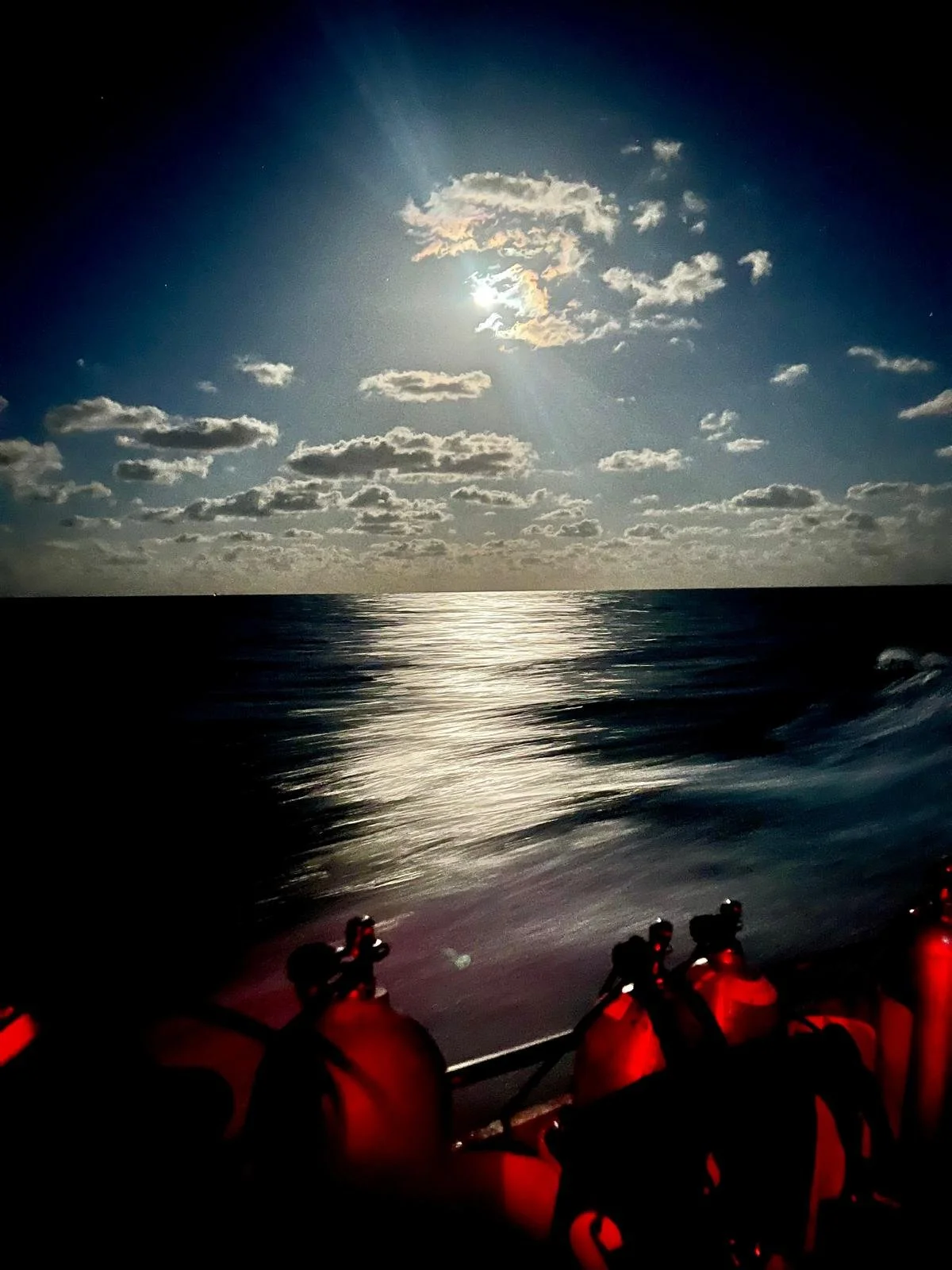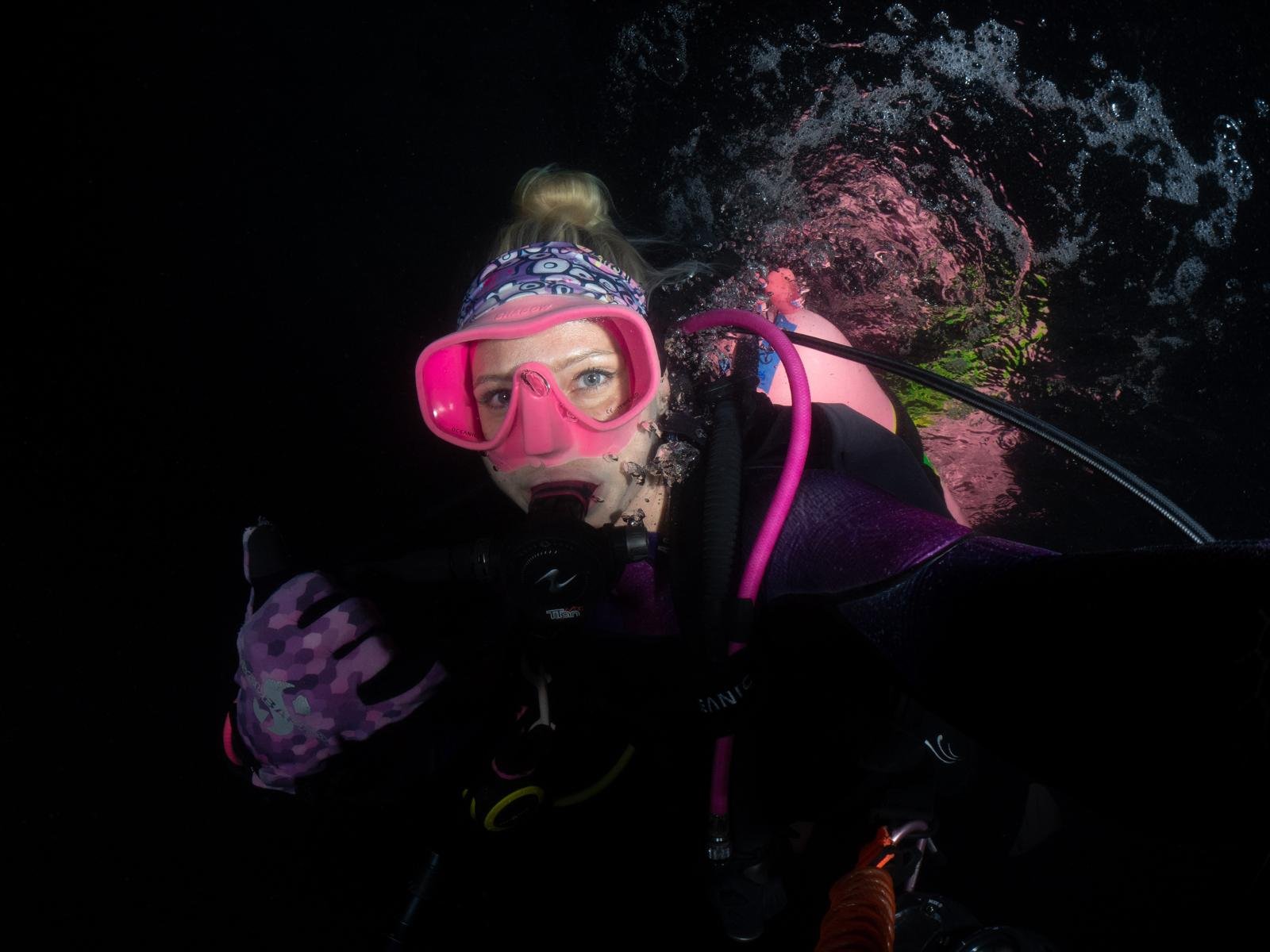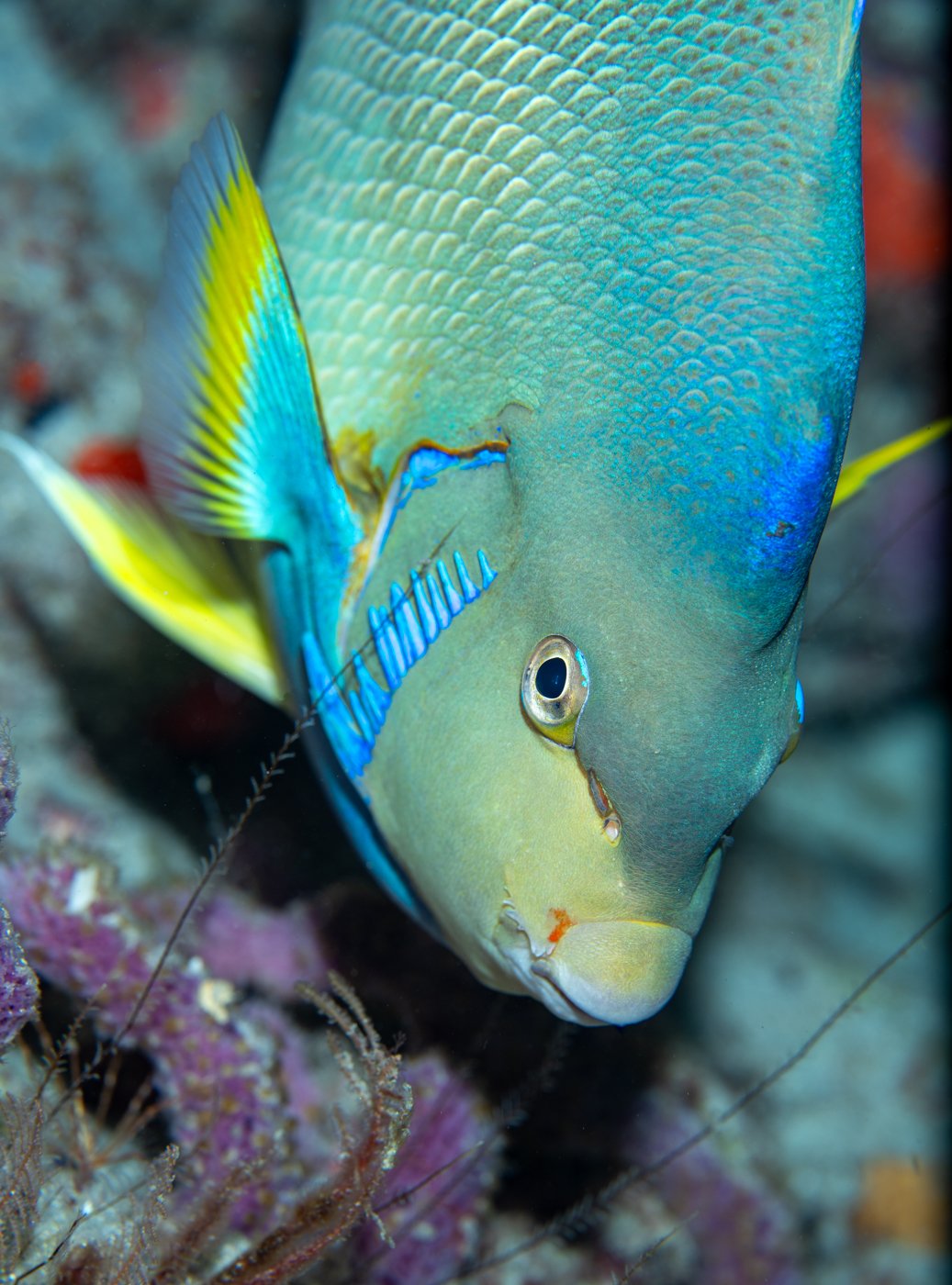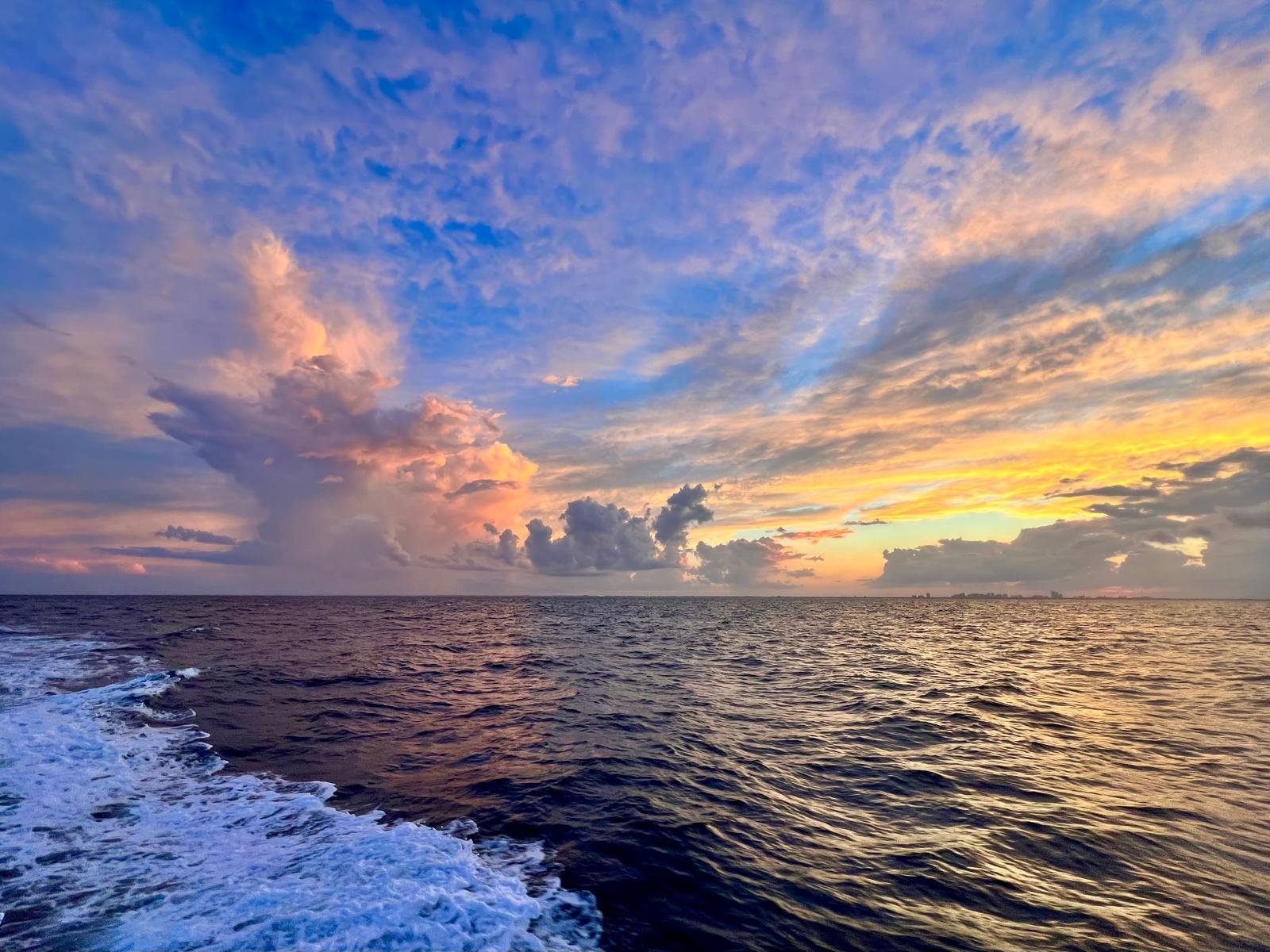Night Diving - Magic under the Moonlight
Epic full moonrise as seen from the Kyalami Too on a night dive with the Scuba Club last week.
Night dives are some of my favorite dives - let me tell you why.
In my happy place. Night dives are so serene and relaxing.
But it wasn’t always this way . . . I actually waited several years after becoming certified to even attempt diving at night - something about being in the ocean in complete darkness honestly had me feeling a bit leery. Just thinking about it, my imagination would run wild…conjuring up images of hungry bull sharks sneaking up on me while I unknowingly pointed my flashlight the other way. Then I learned about blood worms… enough said!
While some may be fearful of shark encounters on night dives, the scariest things on our reef truly are these invasive lionfish! They are nocturnal hunters, coming out at night to devour juvenile tropical fish. They have voracious appetites, and according to the Ocean Conservancy, scientists have observed lionfish eating at a rate of one to two fish per minute and their stomachs can expand 30 times their size to accommodate lots of food.
It wasn’t until I completed my advanced course that I braved the dark waters of the abyss, and discovered all the magic that I’d been missing!
On one of my very first night dives I found an octopus out hunting. Watching it shape shift and magically change colors as I followed it around for at least 20 mins was one of the best experiences I’ve ever had while diving. It was a game changing moment for me and I was instantly hooked!
Most scuba divers love spending time in the ocean because of the animal interaction - it’s truly unlike anything we experience while on land. Well at night, the animal interactions are even better. Many animals become remarkably more active at night and the observations and experiences we can have are nothing short of epic.
A hungry green turtle snacks away without a care in the world.
Octopus and eels come out to hunt, lobsters “crawl” across the seafloor, mantis shrimp peek up out of their holes and crabs of all varieties can be spotted doing their mating dances. Best of all I find many animals a bit more relaxed at night, allowing you to get closer and spend more quality time with them. I too find myself more relaxed at night and have discovered night diving to be the perfect activity to unwind after a busy, stressful day on the surface. Gently drifting, exploring a familiar dive site in a whole new light and only focusing on what I can see from the beam of my torch. It is incredibly peaceful and I liken it to a moving meditation.
I feel like I may have interrupted something here. . .
Some gear that is essential if you want to come out with us for a night dive: 2 lights - a primary and a back-up, a tank light (this helps your buddy spot you a bit easier underwater), a hood (to keep those pesky worms at bay) and of course a sense of adventure! If you are into taking photos, a red light can also be helpful for allowing you to get closer to critters without blinding them. We have several light options in the shop that would be suitable to get you started.
A beautifully colored parrotfish settles in for the night. During the day, parrotfish do not stop moving and are incredibly difficult to photograph. Pro tip - if you want a good parrotfish photo, go look for them on the reef at night just before they build their mucous cocoon to sleep in.
While no advanced certification is required, we do offer a night diver specialty and of course you can include it in your curriculum for any advanced course. As with any boat dive here in the Palm Beach area I also strongly recommend nitrox as you can stay down with the group longer and get the most of your dives, it is also much safer. Any of our qualified and helpful instructors can get you all set-up and ready to go!
A stunning angelfish allows me to get up close and personal. Many reef fishes tend to be more relaxed and allow for more intimate encounters at night.
Want to join us for a night dive? Let us know! Reach out and we can set-up dives for large enough groups. Or you can join us on one of our pre-planned trips we host monthly. In addition to night diving on the reef, we also offer private guides at Blue Heron Bridge - an excellent option for those who may not be nitrox certified or new to night dives.
Blue Heron Bridge dive site located at Phil Foster Park in Riviera Beach, FL is an excellent location to become acquainted with night diving and is a great alterative on days our boat isn’t running a night trip. We offer private guides to help you safely explore this special place - day or night!
A premium vantage point for our epic Florida sunsets is just one more perk of heading out with us for a night dive.
So what are you waiting for . . . hope to see you out on a night dive with us soon!
Safe Diving,
Grace
An enthusiastic group of divers heads off into the sunset - ready to explore!











